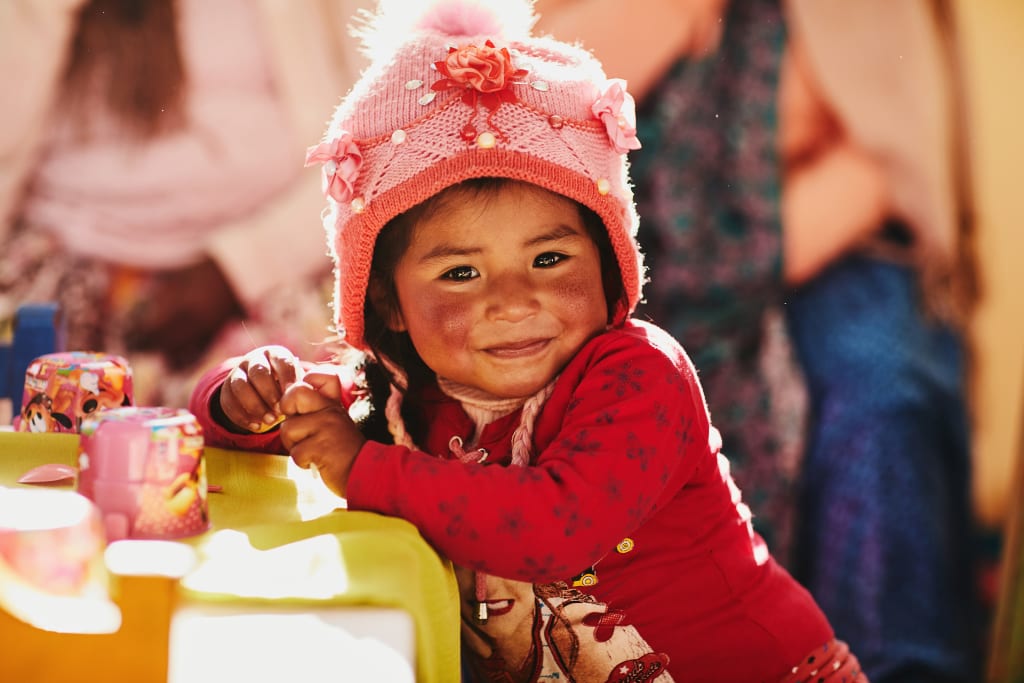There’s no doubt that a child’s first birthday is an occasion to celebrate. Special gatherings are arranged, babies are dressed in their cutest outfits, and sometimes there’s even a cake (to eat or smash). It’s a joyful milestone moment for every child and those who love them.
For babies living in poverty, a child’s first birthday is a milestone also accompanied by a profound sense of relief. This is because every baby, no matter where they are in the world, is most vulnerable in their first year of life. For under-resourced families, this means navigating many challenges to reach that first birthday milestone.
Compassion’s Survival program is helping moms and babies in poverty overcome these challenges and reach that first birthday milestone happy and healthy. This comprehensive program ensures care so that every child’s story starts with hope and continues to ensure every baby thrives.
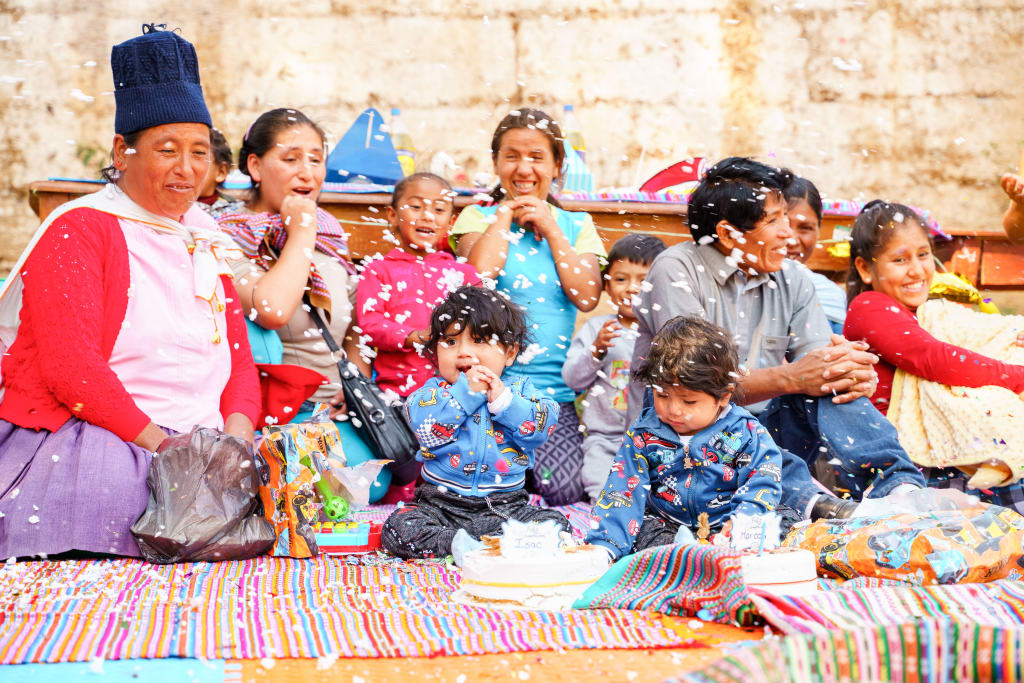
Marcos and Isaac’s first birthday party in Peru.
First birthdays are milestones full of joy. It’s a joy that is full of meaning.
Explore the meaning of this JOY with us today:
J – Justice starts early
O – Overcoming infant and maternal mortality
Y – You can make a difference
Justice starts early
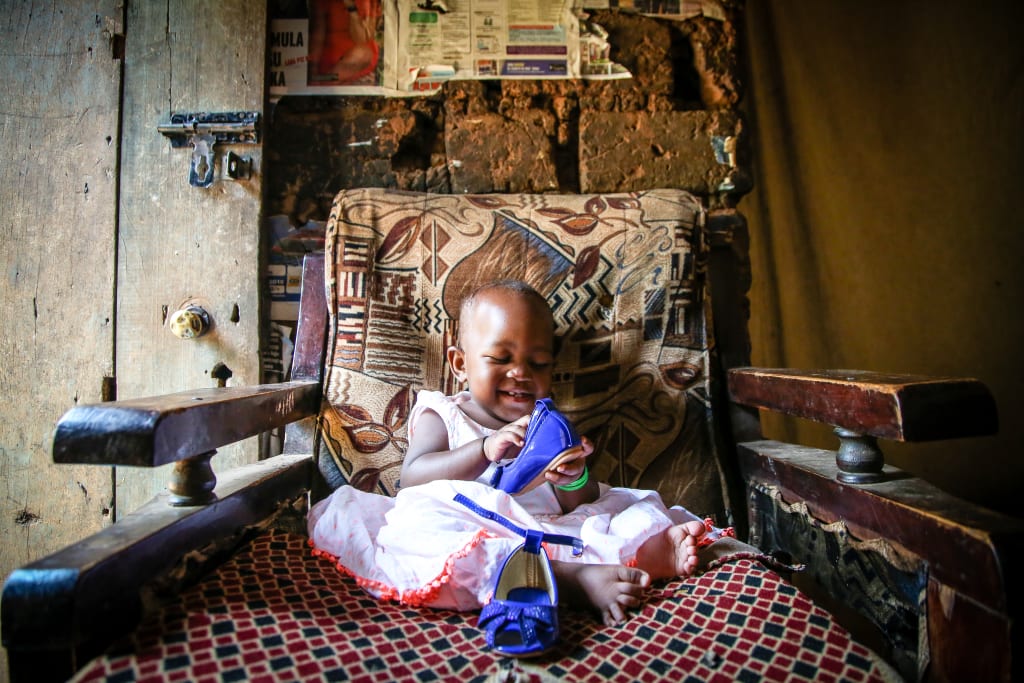
In Uganda, Pamela is all dressed up for her first birthday.
Infant mortality rate is the likelihood that an infant will die before reaching the age of five. Globally, 3.9% of all children die before reaching the age of five, which means that, on average, 15,000 children die every single day. (UNICEF) Meanwhile, the latest estimate from the World Health Organization reveals that a mother dies from pregnancy or childbirth-related complications every two minutes. That’s the amount of time it may have taken you to read the first part of this post.
The data is alarming.
The infant mortality rate (IMR) is a crucial indicator of the overall health of any community or country. In other words, the well-being of the most vulnerable population in any nation reflects its condition and, in many cases, the priority of its people. While there has been some important progress in maternal and infant mortality in the last two decades, the numbers remain unacceptably high.
With other news and global healthcare concerns constantly pulling our attention, it’s easy to miss the urgent and critical needs of mothers and children across the world. But here at Compassion, we believe that the survival of mothers and their babies must remain an absolute priority.
Because how we save and preserve the most fragile and vulnerable lives in our world reflects what justice means to us.
Overcoming infant and maternal mortality
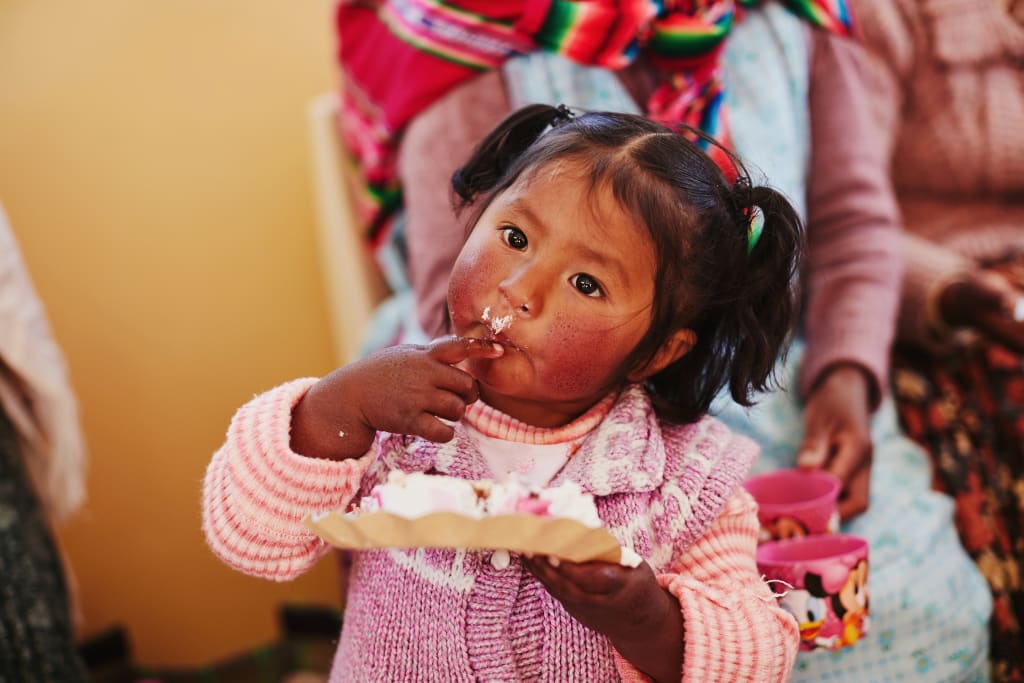
Marisol celebrates her first birthday with delicious cake in Bolivia.
Critical care for babies
According to the WHO, infectious diseases such as pneumonia, diarrhea and malaria, as well as pre-term delivery issues, birth asphyxia or trauma and congenital defects, continue to be the primary causes of death for children under five worldwide. Children who are malnourished, especially those with severe acute malnutrition, have a higher risk of dying from common childhood illnesses. Nutrition-related factors contribute to approximately 45% of all deaths in children under five years old.
A total of 83% of all child deaths under age 5 occur in sub-Saharan Africa (58%) and South Asia (26%). In countries with high infant mortality rates, a newborn faces a significantly greater risk of death—up to 14 times higher than in high-income nations. Why? Because many of these deaths are preventable, as they often occur due to poor care during childbirth or inadequate treatment in the crucial first few days of a child’s life.
Crucial interventions for moms
In 2020, about 287,000 women died during and following pregnancy and childbirth. Almost 95% of all maternal deaths also occurred in low and lower-middle-income countries, and most could have been prevented. According to the WHO, most maternal deaths in 2020 (around 87%, or 253,000) also occurred in Sub-Saharan Africa and Southern Asia. (WHO)
The UN’s Sustainable Development Goal (SDG) 3.2 aims to reduce the child mortality rate to at least as low as 2.5% in all countries by 2030. This would mean that more than 97.5% of all newborns would survive the first five years of their life no matter where they are born. The SDG Target 3.1 aims to reduce the global maternal mortality ratio to less than 70 per 100,000 live births by 2030.
While global progress toward these goals may be slow, we remain hopeful.
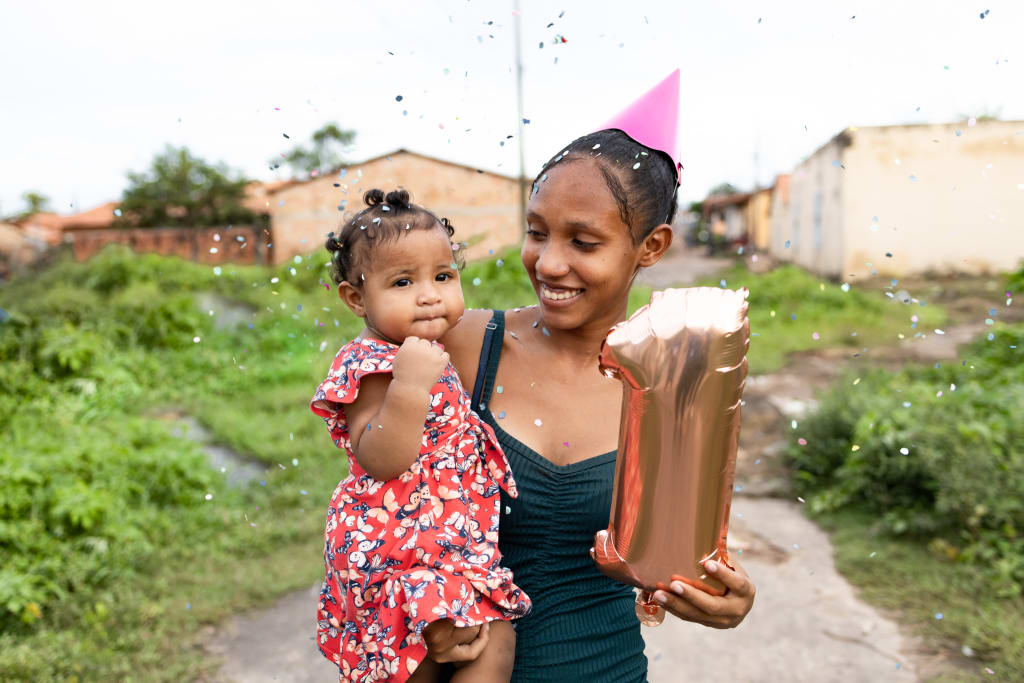
Sophia’s mother, Izabelle, is celebrating her daughter’s first birthday, knowing just how much it means for both of them.
Saving lives so moms and babies thrive
Through the Compassion Survival program, we continue to see firsthand how mothers’ and children’s lives are saved through access to fundamental lifesaving interventions such as skilled birth attendants, pre-and postnatal care, breastfeeding and proper nutrition, vaccines and treatment for common childhood illnesses.
Launched in 2003, the Compassion Survival program is an intervention within our holistic child development model aimed at combating global infant and maternal mortality rates and promoting early childhood development. The program helps when risk is highest: during pregnancy and the first year of life. By intervening within this critical timeframe, Compassion Survival aims to prevent deaths among pregnant mothers, newborns and infants living in poverty, giving little ones the best possible chance to reach their first birthday.
How do we do it?
Our program trains and equips Survival specialists from local, partnering churches to visit babies and moms in their homes and provide much-needed prenatal and medical care along with access to immunizations, food and safe water to meet critical physical needs. Educating mothers and caregivers about the basic principles of healthy child development is a critical component to ensuring lasting, long-term results. Therefore, our Survival specialists provide teaching and mentoring on topics such as:
- Health and nutrition
- Hygiene
- Fine/gross motor development
- Cognitive Stimulation
- Socialization
- Spiritual development
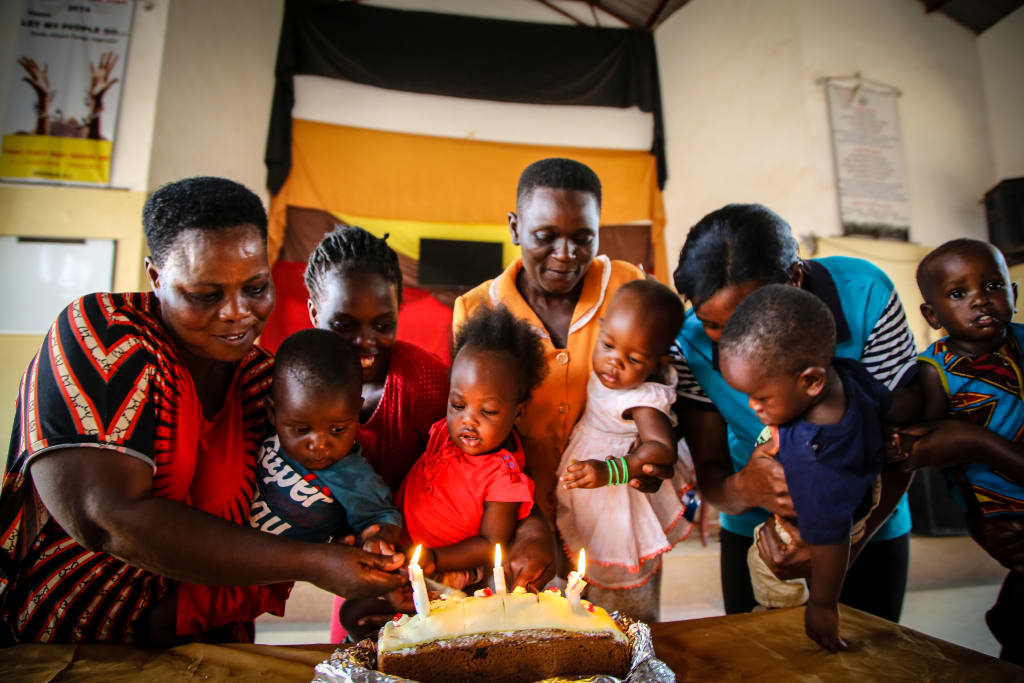
Mothers celebrate together at a birthday party for some of the Survival babies at their Compassion centre.
As needed, mothers and babies are also provided with:
- Prenatal care
- Nutritious food and supplements
- Delivery care via a trained childbirth attendant
- Breastfeeding support
- Regular health checkups and growth monitoring
- Immunizations against deadly or disabling diseases.
Currently, more than 2,200 of Compassion’s local church partners are providing this essential program to mothers and their babies in their communities. But we can do more. With your support, we aim to establish 481 new Survival centres within the next two years, particularly in the four Compassion countries with the highest infant death rates: Burkina Faso, Haiti, Ethiopia and Togo.
You can make a difference
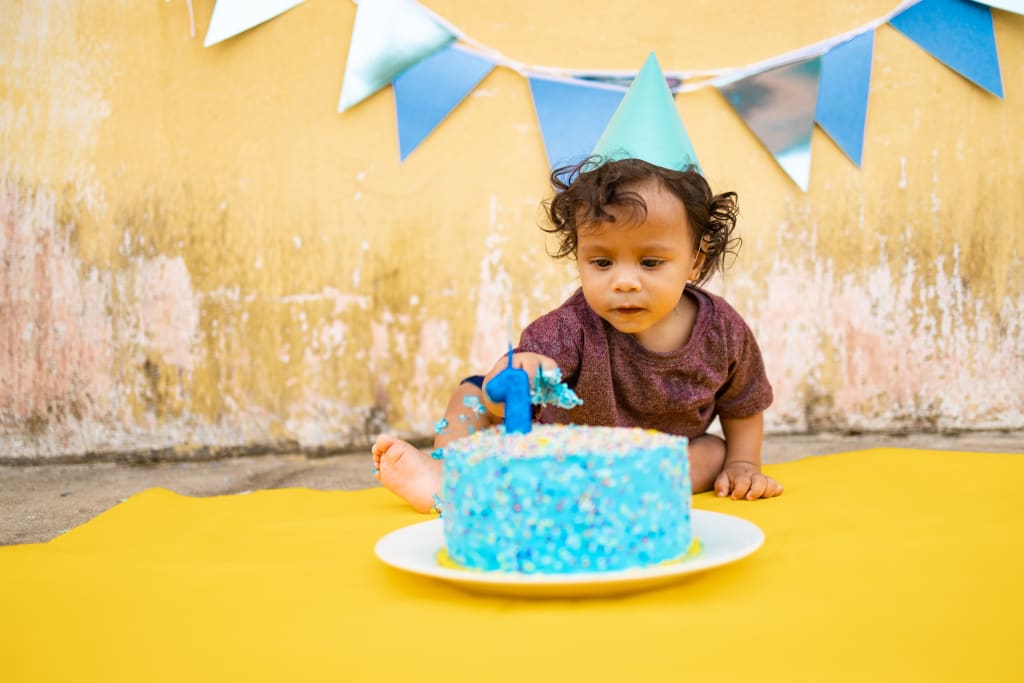
Arthur selebrates his first birthday at his Compassion centre.
Now we know more about why mothers and babies die and how we can give them a chance at survival.
In the last year, 30,760 babies and their moms received lifesaving interventions through Compassion’s Survival program. That’s significant. If we keep moving, we can save more lives, which means we can give more mothers the gift of hope and more children the chance to grow and become everything God created them to be. This is the joy you can help ignite today.
Will you join us? We can do more together.
When you give to the Survival program, you help us support more pregnant women and mothers of babies under one by providing them with necessary nutrition, regular medical check-ups and childcare guidance, ensuring their little ones not only survive but thrive during the critical first months of life.
